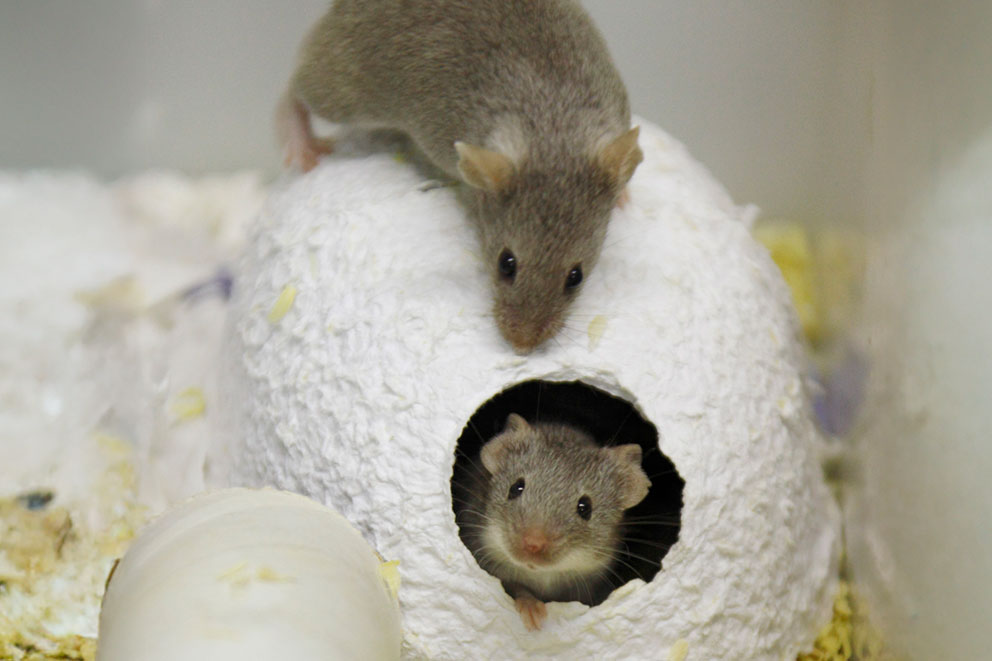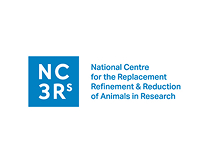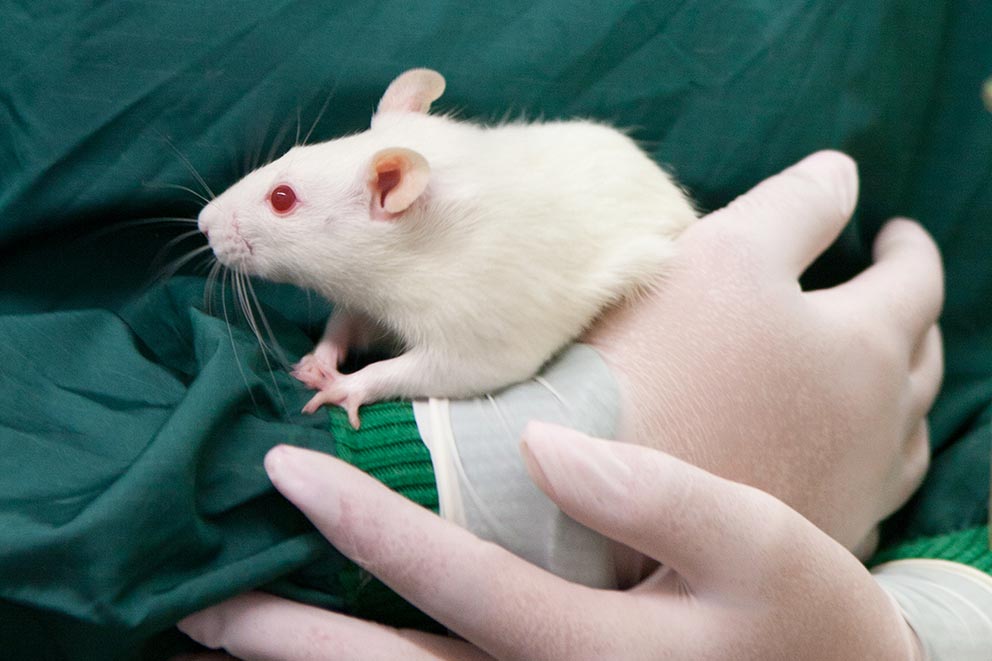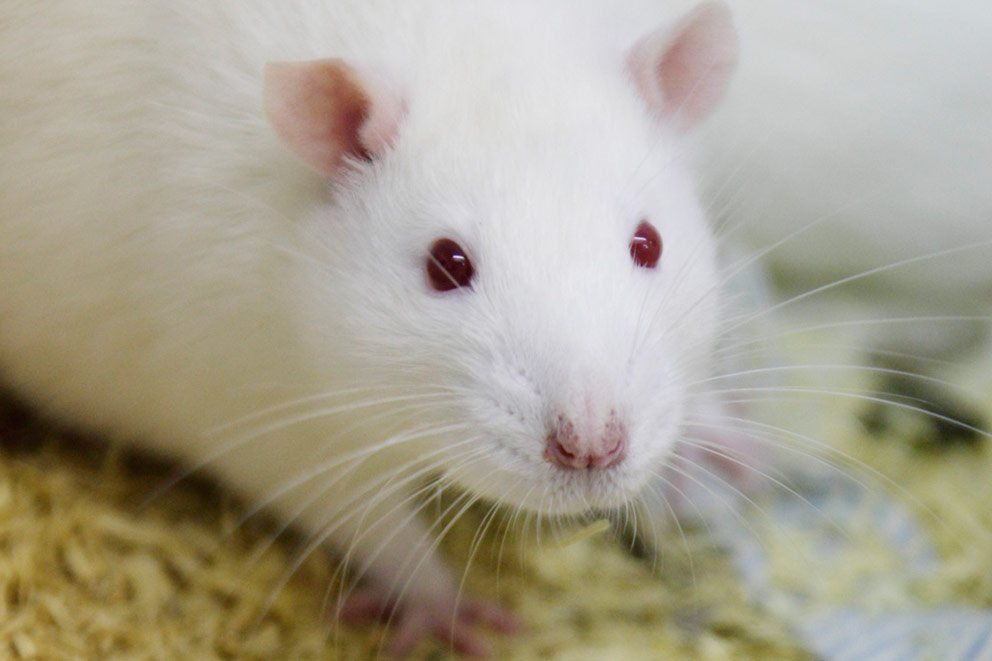Refinement
Refinement can be defined as any measure that will reduce suffering or improve welfare, when applied to scientific procedures, housing, transport, husbandry procedures (including marking for identification and cage cleaning), the animals’ environment (e.g. temperature and light levels), welfare assessment, humane endpoints and humane killing techniques.

Importance of refinement
As it is clearly critical to tackling severe suffering, so it is essential not to become complacent about implementing refinement. Refinement is not a ‘one-off’ event at the project planning stage, nor is it a matter of just following in-house refinement protocols. There may be new information and approaches outside your institution, and you may need to search for these. Communicating about refinement should be two-way, and it is especially important for scientists to share good practice with their colleagues and peers.
Approaches to refinement
Refinement begins with reviewing and considering the lifetime experiences of each animal at the project planning stage, with input from people with different expertise including the scientist, the veterinarian, and animal technologists. The AWERB, AWB, IACUC or AEC should be able to provide useful input.
Major aims are to:
- Identify as many sources of pain, suffering or distress (harms) as possible, so that refinements can be researched and included in experimental protocols and within housing, husbandry and care
- Identify and define humane endpoints
- Determine indicators of suffering that are tailored to the species, strain (if appropriate) and procedure for day-to-day welfare assessment
- Identify opportunities to improve welfare

Sources of information
- The literature – a search for [disease], [animal model], [species] and [welfare] or [refinement] can be a useful starting point as well as dedicated discussion forums such as COMPMED, LAREF and VOLE (these require membership). The person responsible for ensuring that staff have access to species-relevant information within each establishment should be able to provide additional information (this is the Named Information Officer in the UK). Expert working group reports are available for some severe procedures; for example, RSPCA-convened expert working groups have produced reports on refining procedures involving seizures, convulsions and epilepsy; experimental allergic encephalomyelitis; sepsis; and rheumatoid arthritis.
- Use the PREPARE guidelines to help ensure that you have considered all aspects of a study which can affect its validity and reproducibility, as well as the animals’ welfare.
- Consult scientists, veterinarians and animal technologists with experience in the research area, and relevant societies, organisations and user groups.
- Raise the issue within your institution – ask the AWERB, AWB, IACUC or AEC for a discussion or to provide advice, consult the veterinarian or the person(s) responsible for disseminating information about the 3Rs.
- Ask the regulator for advice. For example, regulators often provide advice on refinement and encourage establishments to share good practice.
-
Go to meetings that address refinement, for example those convened by the RSPCA, IAT, LASA, LAVA and the NC3Rs (or equivalent bodies in your country). Get refinement added to the agenda at meetings held by your own scientific or professional bodies, for example as a presentation, symposium or poster.
- Include information on refinement in posters, presentations and publications. This is relevant to the science and editors or peer reviewers should not insist that you remove it. If you have any issues, use the ARRIVE guidelines to help make your case (especially if the journal has endorsed these).
Dealing with concerns about confounds
In some research areas, there may be concerns that refinement might conflict with the experimental endpoint. For example, in rheumatoid arthritis research, there is debate around whether analgesia can be given to animals experiencing joint pain, in case this will interfere with the inflammatory process.
But a wide range of factors should be considered when deciding whether refinement might introduce confounds, and if so how to deal with this. In arthritis studies, uncontrolled pain and the inability to express natural behaviours are also confounding factors – which could have a greater negative effect on data than providing analgesia.
For scientists, it is critically important to research, and contribute to, current thinking about the impact of refinement on an experimental paradigm, for example by reviewing the literature, discussing with colleagues, the veterinarian and animal technologists, and including refinements in the method section of your publications. Open minds are essential – if there are any questions about the effects on animal welfare or the science, the course of action should be to evaluate these and carefully consider the results.

Further refinement resources
Ways to avoid and reduce suffering
Avoiding and reducing severe suffering helps to fulfil legal requirements, reduce ethical concerns and improve scientific quality. Explore more practical ways to reduce or avoid severe suffering.








